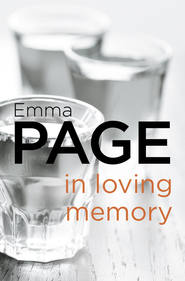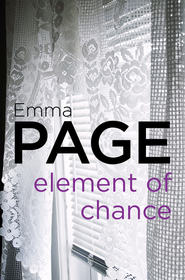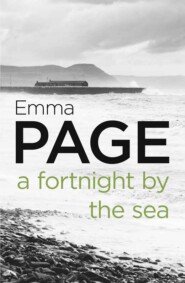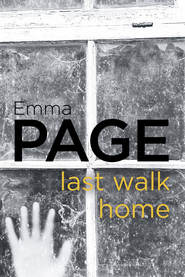По всем вопросам обращайтесь на: info@litportal.ru
(©) 2003-2024.
✖
Scent of Death
Автор
Год написания книги
2018
Настройки чтения
Размер шрифта
Высота строк
Поля
‘Did she ever wear anything in her hair? A ribbon or a comb, perhaps?’ Caught up in the tresses of Joanne’s long dark hair was a large decorative hairslide with the catch open. The slide was of heavy quality polystyrene, white veined with green; it had a fancy curved top
Mrs Huband shook her head. ‘I never saw her wear anything in her hair.’
‘What time did you get back home that Wednesday evening?’
‘About ten o’clock. She’d taken all her things – she only had the one bag with her, a duffel-bag. She’d left everything nice and tidy, the house properly locked up.’
When they left Mrs Huband’s they went straight along to the hostel but the Warden could tell them nothing further. Helen Mowbray had never had any contact with the hostel and Joanne had neither shown up again or phoned, after her visit on the Tuesday afternoon. Nor had she mentioned, during that visit, the names of any contacts she hoped to see the following day.
They called next on a Miss Gallimore who had phoned the station to say that Helen Mowbray had at one time lodged with her. Miss Gallimore was an old woman, white-haired and fresh-complexioned, with an air of having seen better days; she lived in a run-of-the-mill red-brick semi in a side street not far from the centre of town. She took them into a sitting room with a great many faded family photographs in ornate old frames ranged on top of the piano and along the mantelshelf.
Helen had come to lodge with her almost exactly four years ago, when she had first come to Cannonbridge. She had been the sole lodger; Miss Gallimore never took more than one girl at a time. Helen had stayed about a year; thirteen months, to be precise. She had been a very satisfactory lodger, always paying promptly, clean and tidy, pleasant and polite, quiet and hard-working.
Miss Gallimore’s recollection was that Helen had worked for agencies when she first came to lodge with her, then she had had one or two spells of working for a particular employer, with some freelancing in between. She was able to give them the names of two employers: the Cannonbridge branch of Wyatt Fashions, and Fletcher’s Plastics, on the industrial estate.
Kelsey asked her if Helen had had any men friends. Yes, she had, that is, she had gone out sometimes in the evenings or at weekends and Miss Gallimore had assumed it was with some man or other. She had never brought anyone to the house, had never mentioned anyone. ‘I didn’t ask her personal questions,’ Miss Gallimore said. ‘It’s never been my way, and I’m sure she wouldn’t have welcomed it. She wasn’t a chatty girl.’
Why had Helen decided to leave after thirteen months?
‘We didn’t have any disagreement or anything like that. She was beginning to do quite well in her little business and she felt she could afford a place of her own. She told me she’d seen a furnished flat she liked.’ Miss Gallimore hadn’t seen Helen again after she left. ‘I can give you the address of the flat,’ she added, ‘but it’s not much use your going round there. The house has been pulled down, they’ve put up some flats there. You probably know the place – Holmwood, the house was called, on the Tappenhall Road. It had a big garden.’
Yes, Kelsey did know the place, on the southern tip of Cannonbridge. An Edwardian house had stood there until a couple of years ago. The site was occupied now by sheltered-accommodation units for the elderly.
He asked if Joanne had contacted Miss Gallimore. Yes, she had called at the house on a Monday afternoon at the end of February; she had been given the address by the Cannonbridge Secretarial Agency. Miss Gallimore had told her what she had just told the Chief. Joanne had said nothing to her about any discoveries she had made or any leads she intended following.
When they left the house Kelsey looked at his watch: time to be getting along for the results of the post mortem. The Cannonbridge Secretarial Agency would have to wait till tomorrow when the agency would be open again after the Bank Holiday, but they could call in at the Tradesmen’s Agency this afternoon. This was a small concern run from a private house by a Mrs Ingram; it dealt with the services of plumbers, carpenters, electricians and the like. Mrs Ingram had phoned them on Sunday evening to say that Helen Mowbray had worked for several of the men on the agency books; she would be at home all day if they wished to talk to her. ‘After we’ve seen her,’ Kelsey told Sergeant Lambert, ‘you can get on over to Martleigh again, see if you can manage a word with that neighbour of Lockyear’s, Mrs Snape.’
The post mortem provided no surprises; afterwards there was a conference, briefings, the Press to be dealt with. It was turned three by the time they reached the small detached dwelling that housed the office of the Tradesmen’s Agency.
Mrs Ingram was on the phone when they arrived. She was a youngish woman with a briskly capable manner. She had spent the morning attempting to contact the men on her books in order to ask them about their dealings with Helen Mowbray, but she had been able to speak to very few of them, because of the holiday. From those she had spoken to she had learned nothing of significance.
Helen had got in touch with her shortly after she arrived in Cannonbridge. Mrs Ingram had given her a list of agency members; one or two had immediately employed Helen to prepare their accounts. Her work had been excellent. She had subsequently been employed by several others on the books; there had never been any complaints.
Mrs Ingram handed the Chief a list of members with a mark against the names of those she knew had employed Helen. ‘I can’t imagine there was ever any question of any personal involvement with any of our members,’ she said with the air of a tigress protecting her young. You’d hardly be likely to know if there was, Kelsey thought, running his eye down the list. Most of the addresses were in Cannonbridge, a few in neighbouring villages.
Yes, Joanne had contacted Mrs Ingram on the morning of Monday, February 28th. ‘She phoned to ask if she could come round to see me,’ Mrs Ingram said. ‘I saw her at twelve o’clock.’ She showed the Chief the entry in her desk diary.
She had given Joanne much the same information as she had just given the Chief. She had later heard that Joanne had phoned every man on the agency list and had called to see two or three. ‘She was certainly thorough,’ she said with a note of respect. ‘But as far as I know, none of them was able to tell her anything very much. None of them had had any dealings with Helen for two years or more.’ It had been her private opinion that Helen had probably gone off to London or some provincial city, that Joanne didn’t stand much chance of coming across any recent traces of her in Cannonbridge.
The afternoon sun was still warm as Sergeant Lambert drove over to Martleigh; there was a welcome temporary lull in the holiday traffic.
Earlier in the afternoon Arnold Lockyear had duly telephoned to learn the findings of the post mortem. He had made no comment on the results, had merely confirmed that he would be attending the inquest later in the week.
According to the lengthy statement he had made on Sunday, after his visit to the mortuary, Lockyear had had no contact of any kind with Helen after she left Thirlstane Street four years ago. Nor had he had any kind of communication from Joanne since she had gone off to look for Helen at the end of February. In neither case had he expected any contact. ‘I dare say you’ll hear this from others,’ he told the Chief, looking at him with weary resignation, ‘so you might as well hear it first from me. I was never on what you would call very friendly terms with either of the girls.’
Arnold’s mother had died when he was twenty, and his father had married Mrs Mowbray, a widow, seven years later; her daughters, Helen and Joanne, were at that time aged eight and four. ‘I did my best to get on with them all,’ Arnold told the Chief. Things had gone along well enough until the death of the second Mrs Lockyear a few years later. She was a woman of some refinement, fond of reading and music, very different from the robust, down-to-earth countrywoman his father had married first time round. The second Mrs Lockyear had fussed over her daughters, dressed them in artistic clothes she made and embroidered herself, encouraged them to think of themselves as talented, likely to make a place for themselves in the world beyond the domestic hearth. Her new husband humoured her, charmed by his luck in snaring this unlikely bird of paradise. Arnold was living at home, working in the shop – he had worked there ever since leaving school. He had felt himself an outsider in the new family circle. It was then that he had taken on the allotment, had begun to spend his spare time digging and hoeing, planting and weeding, in fair weather and foul.
Perhaps if the marriage had lasted longer Lockyear senior might have ceased to humour his new wife to the same extent, but three years after she walked out of the register office on his arm she was abruptly taken off by a rapid disorder of the blood. Her husband couldn’t believe she would die. Right up until the last moment he had fought against the idea, had refused to countenance it. He was knocked sideways by her death. Certainly there was never any question of his going out to look for any successor to her.
He was determined to look after his stepdaughters with every possible care. He went next door and asked Mrs Snape if she would come in daily to cook and clean, keep an eye on the domestic side of things in general, watch over the two motherless girls. She had readily agreed.
Things continued in this fashion for another four years and then Lockyear himself died, dropping dead from a heart attack one afternoon as he was unloading the van after a trip to the slaughter-house – right there in Thirlstane Street, in front of the shop, standing by the rear doors of the van, with Arnold helping him to unload.
After that it was just Arnold and the two girls, Helen now almost sixteen and Joanne twelve. In Lockyear’s will everything had been left to Arnold; house, business, furniture, savings. There was a clause instructing Arnold to pay over by way of dowry the sum of three thousand pounds to each girl on the occasion of her marriage or at the age of thirty if she should still be unmarried at that time. In addition Arnold was charged with continuing to provide a home in Thirlstane Street for both girls for as long as they should require it.
‘What happens to the dowry money now?’ Kelsey had asked. It seemed it would pass to Arnold. Certainly not a fortune, Lambert mused, though many men had killed for a great deal less. He had no idea if Arnold was in any way strapped for cash, how well the shop was doing.
‘I certainly didn’t drive either of the girls out of the house,’ Arnold had said with some heat. ‘Whatever you may hear from others.’ It was true that shortly after his father’s death he had made some alterations to the way the household was run; that was surely only to be expected. He had informed Mrs Snape that her services would no longer be required. ‘After all,’ he told the Chief, his brown eyes steady and unflagging, ‘Helen was rising sixteen. Some girls are married at that age, running a house and looking after a husband, entirely on their own. I didn’t see why she shouldn’t buckle down to a bit of housework. I felt it would do her good, she’d have to learn how to manage a home one day. And Joanne was old enough to help. They were both strong, healthy girls. I couldn’t see that it was any great hardship.’
Helen was at that time in her final year at school, taking a course in book-keeping and secretarial skills. Kelsey asked how she had received the news that Mrs Snape would no longer be coming in to run the house. Arnold had shrugged. ‘She didn’t say anything, she just got on and did what was needed. She was good at it too. I wasn’t surprised. I knew they learned domestic science, cookery and needlework, all that kind of thing, at school. It was just that she’d never been asked to do it before.’ No, she had never appeared to resent the change, she had never made any comment. Some fifteen months later, a few days after her seventeenth birthday, she had left home.
Kelsey asked Lockyear to outline the circumstances. ‘She left school in the summer,’ Arnold told him. ‘She’d done well there. She’d won a couple of prizes, one of them was for being the best student on the secretarial course. She could easily have got a good steady job in Martleigh right away. I know for a fact she was offered one in a solicitor’s office and another with an estate agent – on account of winning the secretarial prize. But she wouldn’t take either of the jobs, and she wouldn’t look for another.’ She hadn’t discussed the matter with him. ‘That wasn’t her way,’ he said with a note of old resentments. She had gone along to a secretarial agency in Martleigh and put herself on their books; they had sent her out to local temporary and relief jobs.
‘And I also know for a fact,’ Arnold had added, ‘that she was offered jobs by different employers she worked for while she was with the agency.’ But again she had accepted none of them. One spring morning, seven or eight months after she joined the agency, she had left home. She hadn’t told him she intended going, she had left no note, had apparently said nothing to Joanne. He had only become aware that she had left when he came into the house after closing the shop for the day and had found no sign of supper and no sign of Helen. When she hadn’t come in by nightfall he had gone into her bedroom and found most of her belongings gone.
‘Were you surprised?’ Kelsey asked. Arnold shook his head. ‘No, I can’t say I was. She was always secretive.’ He had phoned the agency to see if they knew anything. They told him Helen had given the usual month’s notice and had left with an excellent reference from them and no doubt equally good references from various employers. She had given them to understand she was taking a short holiday and then going off to some larger centre, London or one of the provincial cities, in search of wider opportunities.
Arnold hadn’t worried overmuch about her, he had felt she was quite capable of looking after herself.
Joanne was then fourteen, reasonably competent in the house. She worked well at school, was no trouble there or at home. A quiet girl who never bothered with boyfriends, never wanted to go out to discos or parties. She had stayed in her room a lot, reading, studying, drawing; she hadn’t appeared to miss Helen.
In due course she had left school. She had wanted to take an art course, had wanted to go off to some college near London. But it would have cost a lot of money – and Arnold couldn’t see what it could lead to. The local education authority had cut back on discretionary grants and in any case didn’t look with favour on art courses, taking the view that the country was already oversupplied with unemployed designers – a view Arnold heartily endorsed.
He had done his best to discourage these notions on Joanne’s part. He reckoned she’d inherited her fancy ideas from her mother. ‘She wanted me to advance her the money for the course,’ he said. ‘Out of the three thousand that would be coming to her one day under my father’s will. Of course I refused. The whole of the three thousand would have been swallowed up well before the course ended – and that wasn’t what my father had in mind for the money, he intended it as a nest-egg for the future.’ He had told Joanne she could either find herself a job right away in the town or she could take some sensible, straightforward course at the Martleigh College of Further Education. If she didn’t fancy the secretarial side there was domestic science, accountancy, hotel catering; a wide variety of practical, down-to-earth subjects.
‘But she wouldn’t have any of them,’ he said. ‘She went out and got herself a temporary job.’ At an art shop in Martleigh, serving behind the counter while one of the regular girls was in hospital. The job had lasted a few weeks, then she had worked for three months in a needlework shop where one of the assistants was on maternity leave. After that she was taken on in a department store for the Christmas rush and the January sales. Shortly before her stint there came to an end the letter had arrived from the solicitor up north, informing the girls of the death of their mother’s sister. Joanne had appeared very anxious to get her hands on her share of the aunt’s money, but she hadn’t told him she intended going to Cannonbridge to look for Helen; he had known nothing about that until the Sunday she left. She had simply informed him as she cleared away the breakfast things that she was going.
He had had no idea that she knew of anything to link Helen with Cannonbridge. She hadn’t mentioned any such link to him then, she had merely told him that that was where she was going. He asked how long she intended staying. She had shrugged and told him to expect her when he saw her. She might go on somewhere else from Cannonbridge, it depended on what she found out. He had told her she was on a fool’s errand, the money from the aunt’s intestacy would be paid over in the end, he couldn’t see why there need be so much rush.
No, he hadn’t worried about her. She was as determined a character as Helen; she was intelligent and serious-minded, had always behaved sensibly in Martleigh, he had no reason to suppose she would behave otherwise in Cannonbridge.
‘If you had never heard of her again,’ Kelsey put to him, ‘if she had simply stayed away, like Helen, would you have done anything about it?’
Arnold was silent for a minute or two. His eyes never left the Chief’s face. At length he said, ‘No, I don’t believe I would. I’d probably have thought she’d found Helen and decided to stay with her.’
‘You wouldn’t have expected her to inform you of that decision?’
He shook his head. ‘Probably not. I don’t think you quite appreciate what self-willed, independent girls they were.’
What would happen to the aunt’s money, now that both girls were dead? ‘I imagine it will all go to the State.’ Arnold had looked unwaveringly at the Chief. ‘It certainly won’t come to me. The old lady was no kin of mine.’ Hard to see how Arnold stood to benefit by the girls’ deaths, Lambert pondered – apart from no longer having to pay out the two dowries.
Kelsey had asked how often Arnold had visited Cannonbridge over the last few years. ‘I came here on a coach trip about fifteen years ago,’ Arnold had answered. ‘I haven’t been here since, never had any occasion to.’ He had paused briefly. ‘Until today.’
CHAPTER 4 (#ulink_dd15de9e-67e2-59b3-b83e-9b14328ff70a)
There was no sign of life in the butcher’s shop or the living accommodation when Lambert reached Thirlstane Street. He got out of his car and stood surveying the property; he could discern no movement behind the windows, no sound from within.
He went next door and pressed the bell; it was a minute or two before his ring was answered. When the door was at last flung open Mrs Snape stood facing him with an expression of lively irritation that was at once replaced by a smile of welcome.











